This workshop will be held on Monday, March 20th, 2017, 1:30-5:30pm at the Marriott.
Agenda
| Time | Speaker | Title |
| 1:30-1:50 | Yasuo Yoshikuni | Opportunities for facility-enabled science by the DNA synthesis science program |
| 1:50-2:10 | Sam Deutsch | |
| 2:10-2:40 | Brian Fox (Univ of WI) | Gene synthesis and cell-free translation put function onto phylogeny |
| 2:40-3:10 | Gina Turco (UC Davis) | DNA methylation and gene expression regulation associated with vascularization in Sorghum bicolor |
| 3:10-3:30 | Break | |
| 3:30-4:00 | Soichi Wakatsuki (Stanford University) | |
| 4:00-4:30 | Dominique Loque (JBEI at Berkeley Lab) | Use of Synthetic Biology Tools in Bioenergy Crops Engineering |
| 4:30-5:00 | Eyal Akiva (UCSF) | How natural variation can guide rational enzyme design? Lessons from the functionally diverse nitroreducatase enzyme superfamily |
| 5:00-5:30 | Annie Tsong (Amyris Biotech) | Reinventing central carbon metabolism for commodity scale isoprenoid production |
| 5:30 | End | |
Host: Yasuo Yoshikuni, LBNL
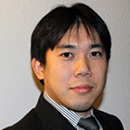
Yasuo Yoshikuni
Prior to joining at the DOE JGI, Yasuo was a co-founder and Chief Science Officer at a clean technology start-up, Bio Architecture Lab, Inc. (BAL) where his significant achievement was using synthetic biology to develop the first microbial platform technologies enabling to unlock the potential of macroalgae as highly environmentally sustainable and cost-effective biomass for the production of renewable fuels and chemicals. The development of this technology allowed the company to raise $40 million from private funding sources, receive prestigious national grants and build a commercial partnership with leading companies in the oil and chemical industries. The work also led to several high impact scientific publications. Yasuo’s research focus is to discover novel secondary metabolites and to study their roles in microbial-microbial and plant-microbial communications in various environments. He is currently developing design principles, tools, and methodologies to mine and characterize novel secondary metabolite biosynthetic pathways and component enzymes by leveraging on the DOE JGI’s unique resources and capabilities.

Eyal Akiva
Eyal Akiva, UCSF
Eyal Akiva got his PhD in the Hebrew university of Jerusalem in prof. Hanah Margalit’s lab, where he studied the principles of quaternary structure formation of proteins and the functional linkage between short linear motifs and phosphorylation sites. He then did his 1st postdoc in prof. Tanja Kortemme lab in UCSF, where he showed how structure prediction using Rosetta may help in assessing the possible mutational routes that viruses like HIV can adopt to evade drug inhibition. In the past few years, Eyal has been working in Prof. Patsy Babbitt’s lab in UCSF, studying the evolution of function of mechanistically diverse enzyme superfamilies via computational tools like similarity networks and in close collaboration with experimentalists. One of the main questions he asks is how can we inform enzyme design based on evolutionary notions gained from large-scale studies of sequence/function features of enzyme superfamilies.
Sam Deutsch, LBNL
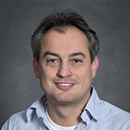
Sam Deutsch
Dr. Deutsch joined the JGI in 2008, and currently leads the DNA Synthesis Science group. Dr. Deutsch received his Ph.D. from the University of Geneva in 2005, where he studied the genetics and genomics of human chromosome 21, and developed new models of dosage imbalance and its association to human disease.
In 2010 Dr. Deutsch formed the DNA Synthesis Science group at JGI, which started operating as a user program in 2011 with the goal of providing access to the rapidly evolving Synthetic Biology toolkit to the broader community. The main goal of the group is to enable users to study the function of genes and pathways that are difficult to source from sequence databases, including uncultured microbes and higher plants in order to accelerate the development of applications relevant to DOE mission science.
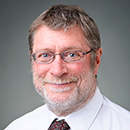
Brian Fox
Brian Fox, University of Wisconsin-Madison
Prof. Brian F. Fox is Professor and Chair of the Department of Biochemistry, and Associate Vice Chancellor for Research Policy, in the Office the Vice Chancellor for Research and Graduate Education at the University of Wisconsin-Madison. His research efforts are at the interface of mechanistic enzymology, microbiology, and structural biology. He uses the approaches of gene synthesis, robotic protein expression and translation, and biochemical analysis of protein structure/function. A major focus has been the application of enzymes with broad substrate specificity to unique problems in catalysis and inhibition encountered during enzymatic digestion of polysaccharides buried in the complex ultrastructure of plant cell walls.
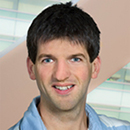
Dominique Loque
Dominique Loque, Berkeley Lab
Dominique is the Deputy Vice President of Feedstocks Division at Joint BioEnergy Institute (JBEI). His primary interests are discoveries and innovations; his current research activities are related to the optimization of plant development and biomass characteristics for sustainable energy-crop and bioenergy production. He is developing expression tools and additional accessories, and using synthetic biology principles to engineer plants. He currently is focused on generating “universal” tools – applicable to many plant species – to reduce cell-wall recalcitrance and, ultimately, optimized energy-crop production.
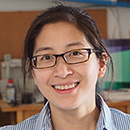
Annie Tsong, Amyris
Annie Tsong, Amyris Biotech
Annie Tsong is Director of the Farnesene Strain Development program at Amyris. Dr. Tsong specializes in the rewiring of central metabolism to produce commodity chemicals, and led efforts to successfully implement this technology in the commercial production of farnesene. Prior to Amyris, Dr. Tsong was a Research Fellow at the Miller Institute for Basic Research in Science at UC Berkeley, where she studied the genetic basis of quantitative variation in signal transduction. She earned her Ph.D. in genetics from UC San Francisco.
Gina Turco, UC Davis
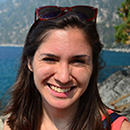
Gina Turco
Gina Turco is a 5th year PhD student in the group of Siobhan Brady at the University of California, Davis. She is in the Graduate Group of Biochemistry, Molecular, Cellular and Developmental Biology (BMCDB) and affiliated with the Department of Plant Biology, the Genome Center and the Data Science Initiative at Davis. Her research focuses on modeling transcriptional regulation of plant xylem cells. These predictions are used to develop plants with stronger and thicker cell walls, resulting in higher biomass plants. She is interested in studying transcriptional regulation through the use of mathematical models. She is currently funded by the American Association for University Women (AAUW) Dissertation Fellowship and was previously funded through the National Science Foundation Graduate Research Fellowship (NSF-GRFP).
Soichi Wakatsuki, Stanford University
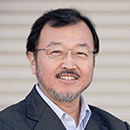
Soichi Wakatsuki
Soichi Wakatsuki is a Professor of Photon Science at the SLAC National Accelerator Laboratory where he recently initiated the Biosciences Division, and Professor of Structural Biology, Stanford School of Medicine. His research interests include structural biology of post-translational modification and vesicle transport, structural biology of polyubiquitin recognition, synchrotron radiation and XFEL instrumentation, protein crystallography and small angle X-ray scattering, integrative multi-scale bioimaging.